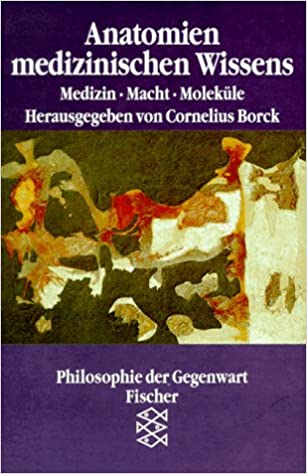When I started to study philosophy in parallel to my enrollment in medical school (which was still possible back then), philosophy of medicine functioned for me as token that it would be possible to combine my different areas of interest. Karl Rothschuh's Concepts of Medicine provided important first insights how the empirical and epistemological heterogeneity of medicine could be systematized. However, I came too late with my visit to Münster and encountered a purely academic attempt to classify and restructure medicines range of practices by the rigid standards of traditional philosophy of science; that was how philosophy of medicine had established itself as an esoteric specialty at that time.
Today Rothschuh's conceptual system looks similarly schematic to me and I wonder why he did not engage more closely with the then new trends in history and philosophy of science in France, England, and America, given that personally he was well connected to this debate. However, his historical approach to questioning medicine and its philosophy remain formative for me when I had the opportunity to collect and edit a volume on medicine for the series "Philosophy of the Present" for the German publishing house Fischer Taschenbuch. While doing my PhD in neuroscience in London, where the Welcome Institute for History of Medicine was still the mecca of history of medicine, I worked at Imperial College where I discovered science and technology studies as vibrant and intellectually stimulating field. I had heard of Ludwik Fleck during my earlier studies with Lothar Schäfer in Hamburg and I edited Anatomies of Medical Knowledge as a test case connecting these two lines of thought and bypassing, by enlarge, philosophy of medicine. After giving historical epistemology and science and technology studies first priority I finally did write a Philosophy of Medicine.
Since then, however, the topics and questions have never left me; some of them contributed more to the contemporary history of medicine, others more to historiographical or contemporary-diagnostic works.
See also:
Publications:
Borck C (2020) Medizin. In: Martina Heßler und Kevin Liggieri (Hg.): Technikanthropologie. Handbuch für Wissenschaft und Studium, Stuttgart: Metzler, S. 362-367.
Borck C (2019) Alexithymie oder wie der Mangel an Gefühl zur Krankheit wurde. In: Alexa Geisthövel und Bettina Hitzer (Hg.): Auf der Suche nach einer anderen Medizin: Psychosomatik im 20. Jahrhundert, Berlin: Suhrkamp, S. 415-433.
Borck C (2011) Living Ambiguity: Speculative Bodies of Science in Weimar Germany. In: Cathryn Carson, Alexei Kojevnikov, Helmuth Trischler (Eds.): Weimar Culture and Quantum Mechanics: Selected Papers by Paul Forman and Contemporary Perspectives on the Forman Thesis, London: Imperial College Press, pp. 453-473.
Amsterdamska O, Bonah C, Borck C, Fehr J, Hagner M, Klingberg M, Löwy I, Schlünder M, Schmaltz F, Schnelle T, Tammen A, Weindling P, Zittel C (2008) Medical Science in the Light of a Flawed Study of the Holocaust: A Comment on Eva Hedfors’ Paper on Ludwik Fleck. Social Studies of Science 38: 937-944.
Borck C (2007) Scheiternde Versuche. Focus MUL 24 (4): 206-212.
Borck C (2004) Message in a bottle from ‘the crisis of reality:’ On Ludwik Fleck’s interventions for an open epistemology. Studies in History and Philosophy of Biological and Biomedical Sciences 35: 447-464.
Borck C (2004) Kummer und Sorgen im digitalen Zeitalter: Stress als Erfolgsprodukt der fünfziger Jahre. Archiv für Mediengeschichte 4: 73-83.
Borck C (2004) Vivarium des Wissens. Kleine Ontologie des Schnupfens. In: Ruth Mayer und Brigitte Weingart (Hg.): Virus! Mutationen einer Metapher, Bielefeld: transcript, S. 43-60.
Borck C (2003) Zwischen Vermittlungskrise und Biopolitik: Der Aktionsradius der modernen Medizin. In: Thomas Lux (Hg.): Kulturelle Dimensionen der Medizin: Ethnomedizin – Medizinethnologie – Medical Anthropology. Berlin: Reimer, S. 124-144.
Borck C Hg. (1996) Anatomien medizinischen Wissens. Frankfurt am Main: Fischer Taschenbuch Verlag.
Borck C (1994) Leiden an der Unübersichtlichkeit der Medizin. In: K.-F. Wessel (Hg.): Herkunft, Krise und Wandlung der Medizin. Kulturgeschichtliche, wissenschaftsphilosophische und anthropologische Aspekte. Bielefeld: Kleine, S. 285-288.
